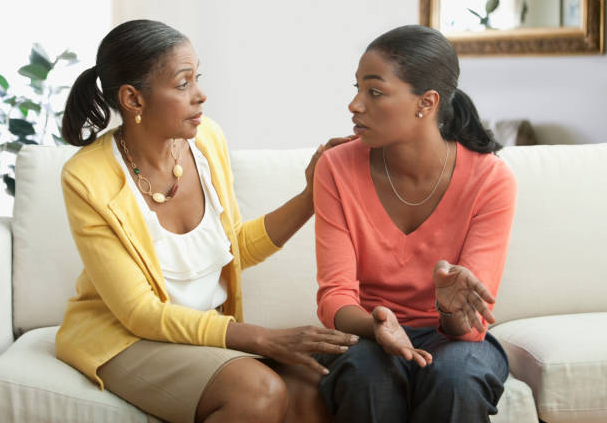Dealing with your child’s divorce

No matter how old you grow, you will always be my baby —this is a unifying quote from many parents. Your child is your child. They will grow, move out and start their own families and still remain your children.
Your child’s worries become your worries too. When an adult child divorces, it is not an easy thing no matter the circumstances that led to it.
Magdalene Mwaka recalls her devastation when her son’s marriage fell apart two years ago. “Apparently, he had cheated several times on his wife of four years whom they had a son together. She wanted out. She was from a different country and my immediate scare was my grandson —the poor child getting caught up in the court battles.
I knew that since my grandchild was young, the mother would be granted custody, if she left the country. I was worried I might never see my grandson again. I was angry at my son honestly, it was his fault. But he was falling apart too.
At this point, I was ready to do anything to make sure the woman does not leave the country,” she recalls.
Be objective
Her son was not financially stable during the time, so she offered to pay for her grandson’s child support on agreement that she would get to see him every month.
“As a grandparent, I guess I had invested emotionally on my grandchild even more. So, I was not ready to lose that relationship.
I felt sad about the separation of course, I tried intervening like any mother would, but there was no reconciliation,” she adds.
Family counsellor, Raymond Mwaura shares that sober parents help their children deal with the challenges objectively without taking sides.
Some parents of divorcing children often make mistakes: they badmouth the son-in-law or daughter-in-law, jump to conclusions about what soured the marriage, or immediately try to seize control of the crisis and end up making their own child too dependent on them in the long run.
“Parents should not take sides, but each should support their son or daughter to successfully grieve and accept the loss of relationship and as well as find ways to live and co parent their children successfully. Parents who are not stable in their own marriage or have history of divorce may not be able to support their children who divorce and they tend to mend their marriages through their children’s marriages. But one should be neutral because children can access both grandparents freely with maturity and soberness,” shares counselor Mwaura.
Guilt and shame, as he says, may affect parents who feel responsible for the success or failure of the children’s marriages so they attribute themselves as successful through their children and this could affect their health and marriages.
“The most important thing a parent can do is simply offer support. Ask your child where they feel they need assistance. Be a ready nonjudgmental ear. Also, objectively try to see if there is any kind of relationship that can be salvaged. Can the ex-couple work together to support the children? Can the more financially stable one assist the other find footing? Meanwhile, the grandchildren should be encouraged to spend some time with grandparents as the parents try and refocus themselves. It is a period of transition from marriage life back to single life,” says sociologist, Fiona Atieno. She says divorce can be amicable, not all involve mudslinging.
She shares how parents need not carry any shame in case their own children led to the divorce, but it will also depend a lot on the relationship that was there prior to the divorce. “There may be no more Xmas parties together. But it is important to remain in communication and also follow up on their well-being unless they say they do not wish to remain in contact. In situations where grandchildren are involved, it is most important for communication channels to remain open and as healthy as possible,” she says.
Offer support
While in many cases daughters return home to regroup, the sociologist says it is important to be welcoming to them. This is not time to scold them about perseverance and forcing them to go back. Your child may be going through emotional issues such as depression, destructive behaviours such as drinking and trying to date several men, among other issues. As a parent, expect the worst in some cases, but be caring and firm that they pick themselves up and forge on.
As far as sons are concerned, parents should encourage them to open up as well and look out for emotional changes and destructive behaviours. They may say they are alright, but be present and try to get them to open to you about what they are going through.
“Parents need to be clear on the fact that marriages can end, and that their children are not failures just because of a failed marriage. A couple may face a lot of turmoil when one is of opinion that marriage should not end, while another is for divorce is best when things don’t work out. The best thing is to realise that it is not about themselves, but ensuring that their subsequent generations are kept healthy irrespective of their own beliefs,” advises Fiona.










